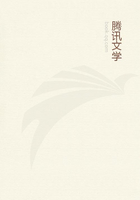
第7章 PREFACE THERE(3)
That the fact is true is sufficient to give it a place there,without any consideration whether it is capable of pleasing or surprising,of diverting or informing,the reader.I have seen a play (if I mistake not it is one of Mrs.Behn's or of Mrs.Centlivre's)where this vice in a voyage-writer is finely ridiculed.An ignorant pedant,to whose government,for I know not what reason,the conduct of a young nobleman in his travels is committed,and who is sent abroad to show my lord the world,of which he knows nothing himself,before his departure from a town,calls for his Journal to record the goodness of the wine and tobacco,with other articles of the same importance,which are to furnish the materials of a voyage at his return home.The humor,it is true,is here carried very far;and yet,perhaps,very little beyond what is to be found in writers who profess no intention of dealing in humor at all.Of one or other,or both of these kinds,are,I conceive,all that vast pile of books which pass under the names of voyages,travels,adventures,lives,memoirs,histories,etc.some of which a single traveler sends into the world in many volumes,and others are,by judicious booksellers,collected into vast bodies in folio,and inscribed with their own names,as if they were indeed their own travels:thus unjustly attributing to themselves the merit of others.
Now,from both these faults we have endeavored to steer clear in the following narrative;which,however the contrary may be insinuated by ignorant,unlearned,and fresh-water critics,who have never traveled either in books or ships,I do solemnly declare doth,in my own impartial opinion,deviate less from truth than any other voyage extant;my lord Anson's alone being,perhaps,excepted.Some few embellishments must be allowed to every historian;for we are not to conceive that the speeches in Livy,Sallust,or Thucydides,were literally spoken in the very words in which we now read them.It is sufficient that every fact hath its foundation in truth,as I do seriously aver is the ease in the ensuing pages;and when it is so,a good critic will be so far from denying all kind of ornament of style or diction,or even of circumstance,to his author,that he would be rather sorry if he omitted it;for he could hence derive no other advantage than the loss of an additional pleasure in the perusal.
Again,if any merely common incident should appear in this journal,which will seldom I apprehend be the case,the candid reader will easily perceive it is not introduced for its own sake,but for some observations and reflections naturally resulting from it;and which,if but little to his amusement,tend directly to the instruction of the reader or to the information of the public;to whom if I choose to convey such instruction or information with an air of joke and laughter,none but the dullest of fellows will,I believe,censure it;but if they should,I have the authority of more than one passage in Horace to allege in my defense.Having thus endeavored to obviate some censures,to which a man without the gift of foresight,or any fear of the imputation of being a conjurer,might conceive this work would be liable,I might now undertake a more pleasing task,and fall at once to the direct and positive praises of the work itself;of which indeed,I could say a thousand good things;but the task is so very pleasant that I shall leave it wholly to the reader,and it is all the task that I impose on him.A moderation for which he may think himself obliged to me when he compares it with the conduct of authors,who often fill a whole sheet with their own praises,to which they sometimes set their own real names,and sometimes a fictitious one.One hint,however,I must give the kind reader;which is,that if he should be able to find no sort of amusement in the book,he will be pleased to remember the public utility which will arise from it.If entertainment,as Mr.Richardson observes,be but a secondary consideration in a romance;with which Mr.Addison,I think,agrees,affirming the use of the pastry cook to be the first;if this,I say,be true of a mere work of invention,sure it may well be so considered in a work founded,like this,on truth;and where the political reflections form so distinguishing a part.But perhaps I may hear,from some critic of the most saturnine complexion,that my vanity must have made a horrid dupe of my judgment,if it hath flattered me with an expectation of having anything here seen in a grave light,or of conveying any useful instruction to the public,or to their guardians.I answer,with the great man whom I just now quoted,that my purpose is to convey instruction in the vehicle of entertainment;and so to bring about at once,like the revolution in the Rehearsal,a perfect reformation of the laws relating to our maritime affairs:an undertaking,I will not say more modest,but surely more feasible,than that of reforming a whole people,by making use of a vehicular story,to wheel in among them worse manners than their own.